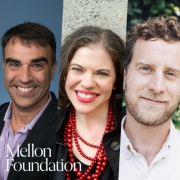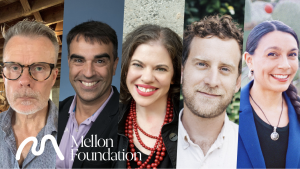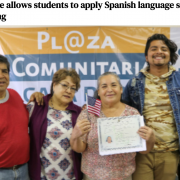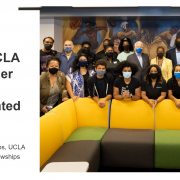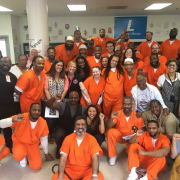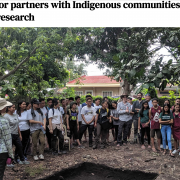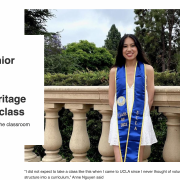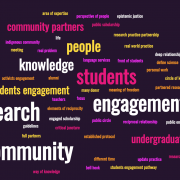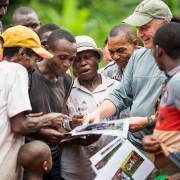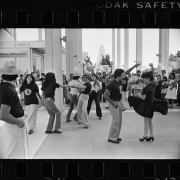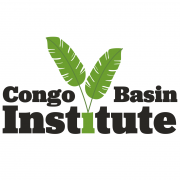UCLA course allows students to apply Spanish language skills in real-world setting
/in spotlight, Uncategorized /by carolina jimenezGrant makes access to a UCLA education easier for underrepresented students
/in spotlight /by carolina jimenezUCLA Prison Education Program brings college courses to incarcerated individuals
/in spotlight /by carolina jimenezUCLA professor partners with Indigenous communities for archaeology research
/in spotlight /by carolina jimenezGraduating senior forged new connections to Vietnamese heritage through UCLA class
/in spotlight /by carolina jimenezThe UCLA Center for Community Engagement Announces Tenure & Promotion Report
/in spotlight /by megan lebreProfessor aims to put the history of Mexicans in Los Angeles at your fingertips
/in spotlight /by megan lebreUCLA Congo Basin Institute receives W.K. Kellogg Foundation Community Engagement Scholarship Award
/in spotlight /by megan lebre| June 22, 2021
Dear UCLA Faculty and Staff: It gives me great pleasure to announce that the UCLA Congo Basin Institute (CBI) has received one of four W.K. Kellogg Foundation Community Engagement Scholarship Awards , given annually by the Association of Public and Land-Grant Universities and the Engagement Scholarship Consortium in collaboration with the W.K. Kellogg Foundation. This prestigious national award recognizes programs that have an exemplary record of productively engaging with communities through their teaching, research and service activities, putting knowledge and skills to work on today’s most critical problems. This award is particularly significant as it acknowledges UCLA’s commitment to community-engaged scholarship both in the region of Los Angeles and beyond, extending to sustained and reciprocal relationships with global communities and institutions. Founded in 2015 as a partnership between UCLA and the International Institute of Tropical Agriculture, CBI focuses on finding solutions to some of Central Africa’s most urgent challenges, including food and water security, climate change, human health and the loss of biodiversity. CBI is a campus-wide resource that currently engages 12 academic units across seven divisions and schools at UCLA. In Africa, CBI co-creates programs that bring together community practitioners and researchers from Central Africa, the U.S., Europe and Asia to solve problems, while creating opportunities for African scholars to pursue meaningful research careers in their home countries. Our campus community can take pride in this recognition and UCLA’s positive impact on the world. Sincerely, Roger Wakimoto Vice Chancellor for Research and Creative Activities |
Los Angeles, CA 90095-1571
310.825.7867


